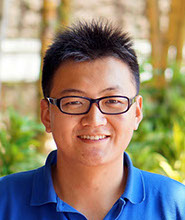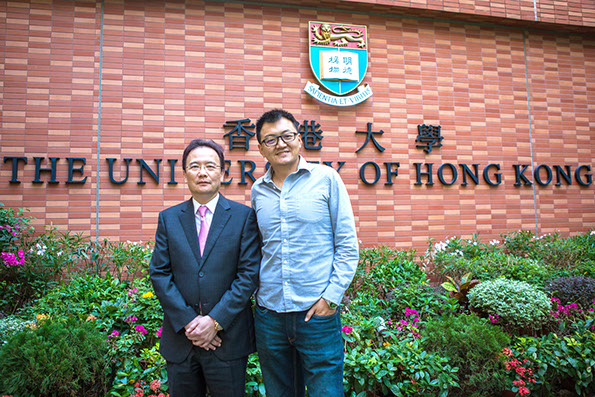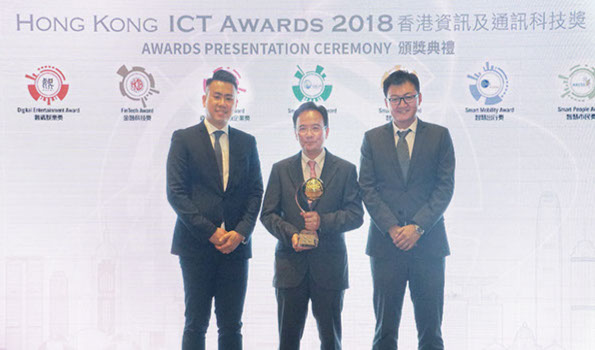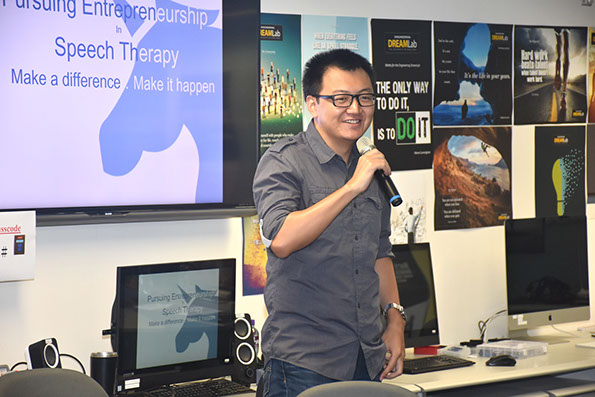_01.png?crc=4174553115)
Cover Story
Research
People
Books
Archive
Download PDF
Download PDF
E-book version
Teaching
and Learning
Knowledge
Exchange
In 2015 Dr Miles HF Wen was nearing completion of his studies and pondering what to do next. He had completed a BEng degree and PhD in electrical and electronic engineering at HKU and was a Fulbright scholar at the University of California-Berkeley, with the world at his feet.
“I could have worked at Google or maybe Facebook, earned some money and then thought later about how to do a start-up,” he said. But that was not enough for a young man who was hungering to launch out on his own. As his mentor and PhD supervisor, Professor Victor OK Li, Cheng Yu-Tung Professor in Sustainable Development and Chair of Information Engineering, recalled: “When Miles was very young, still an undergraduate student, he wanted to create a start-up. We’ve been talking about this for many years.”
So in 2015 Dr Wen returned to Hong Kong, lured not only by the call of home but also opportunities in the form of new institutional support for start-ups in Hong Kong.
The Government had introduced the Technology Start-up Support Scheme for Universities (TSSSU) in September, 2014 to provide retroactive funding for start-ups at the end of their first year. HKU sweetened that offer by advancing successful applicants (who can be professors, alumni and/or students) the TSSSU funds at the start of their first year, to be reimbursed later on. “HKU was actually taking the risk and providing us with an interest-free loan. That’s why I say HKU is actually our investor,” Dr Wen said.
Finding a niche
The University was betting on a pretty sure thing. Dr Wen had developed an artificial intelligence (AI) technology for renewable energy during his doctorate studies that he and Professor Li subsequently developed into new speech and natural processing technology. With the TSSSU funding, they launched the HKU spin-off Accosys to market their platform.
Their first project was a smart concierge service for shopping malls, but they saw greater potential in providing back-room support to regional call centres. China requires all customer call centres to record all conversations. “We believe there is much business intelligence in those recordings, but there’s no way for a human being to listen to all of those conversations. That’s where we come in,” Dr Wen said.
Their AI can recognise different languages and dialects and can even understand when someone is speaking a mix of languages, for example combining Cantonese and English in one sentence. It can deal with spoken and written language (such as text messages) and recognise vocal tone, for instance if someone is angry. These capabilities were all useful for quality and compliance assurance and training, as well as customer service.
The facility with multiple languages is particularly important because the start-up is focussed on the ‘smaller’ market of regional dialects such as Cantonese (about 100 million speakers) and Sichuanese (about 300 million), that are otherwise not served by larger speech recognition providers such as Google.
“One thing I have learned as an entrepreneur is that you want to stay away from head-to-head competition with the giants in the early days. You’re never going to win until you’ve grown yourself into a giant,” Dr Wen said.
“We have our niche and we are focussing on what we do best in areas that they have overlooked now but that still have large potential.”
Advocating a culture change
In pursuit of the market, the founders changed their start-up’s name to Fano Labs in 2017 – after one of the pioneers of AI, Professor Robert Fano – and subsequently became the first Hong Kong start-up to be awarded funding by Horizons Ventures, the private investment arm of Li Ka Shing. In March, 2018, Fano Labs also received Gold and Grand honours in the Smart Business category of the Hong Kong ICT Awards.
Their technology is being used mostly for language analysis of call centre recordings, although it has also detected when an employee has shouted at a customer. Clients include several large state-owned enterprises in Mainland China, as well as Hong Kong firms such as CLP Power, which uses the platform as a ‘chat-bot’ service to provide initial contact with customers, and major property and telecommunications companies.
Dr Wen said they intended to keep their base in Hong Kong despite attractive offers to relocate elsewhere. “When we started in 2015, things were really bad. People said to me, why do you want to do a start-up? Go work for a bank or another company, it will be better. But if we walked away just because the start-up culture was bad, others would do that, too, and it would never improve. Somebody has to make a change here. We’re not just running a good company, we want to set an example for others to follow.”
He is also trying to do this at a personal level by mentoring students at HKU and making himself available to give talks to aspiring entrepreneurs on campus. “Miles has been very good at helping promote an innovative start-up culture at HKU. I’m happy to do that, too,” Professor Li said.
Fano Labs was awarded Gold and Grand honours in the Smart Business category of the Hong Kong ICT Awards 2018.
Dr Wen giving talks to aspiring entrepreneurs on campus so as to promote an innovative start-up culture at HKU.
The two founders of Fano Labs – Professor Victor OK Li (left) and Dr Miles HF Wen (right).

HOMEGROWN START-UP LISTENS TO THE CHATTER
Language processing technology developed at HKU is the foundation of one of the city’s most successful start-ups.

![]() We believe there is much business intelligence in those recordings, but there’s no way for a human being to listen to all of those conversations. That’s where we come in.
We believe there is much business intelligence in those recordings, but there’s no way for a human being to listen to all of those conversations. That’s where we come in. ![]()
Dr Miles HF Wen
Back
Next



_12.png?crc=4068918582)